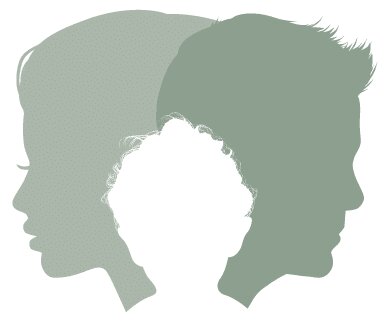Best Child Custody Lawyers in Viborg
Share your needs with us, get contacted by law firms.
Free. Takes 2 min.
Free Guide to Hiring a Family Lawyer
List of the best lawyers in Viborg, Denmark
About Child Custody Law in Viborg, Denmark
Child custody law in Viborg, Denmark, is governed by the Danish Parental Responsibility Act and related family law statutes. These laws ensure that the best interests of the child are the primary consideration in all custody decisions. Custody can involve both legal custody, which covers decision-making authority over major aspects of the child’s life, as well as physical custody, which relates to where the child resides. In Viborg, as throughout Denmark, courts, social services, and government agencies work together to facilitate arrangements that prioritize stability, safety, and the welfare of the child. Both parents are generally encouraged to share responsibility unless circumstances suggest this would not serve the child’s best interest.
Why You May Need a Lawyer
Seeking legal advice or representation in a child custody matter is often necessary for several reasons. Common situations where legal assistance becomes important include disputes over custody or visitation rights, concern for the child’s safety in one parent’s care, cases involving international parents, or if one parent wishes to relocate with the child. A lawyer can help explain your rights, draft necessary documents, represent your interests in negotiations or court, and ensure all legal procedures are properly followed. If there are allegations of abuse or neglect, or if the parties cannot reach an agreement on their own, legal support is crucial to protect both your rights and your child’s well-being.
Local Laws Overview
In Viborg, child custody matters are handled in accordance with Danish national legislation, primarily the Parental Responsibility Act. Legal and physical custody can be shared (joint custody) or granted solely to one parent (sole custody). Parents generally retain joint custody following separation or divorce unless the court decides otherwise for the child's welfare. Disputes are usually first addressed through mediation and guidance provided by the local Familieretshuset (the Family Court House). If issues cannot be resolved through mediation, the case may proceed to the Family Court (Familieretten). The law emphasizes the child’s right to maintain contact with both parents and seeks to minimize the impact of parental conflict on the child.
Frequently Asked Questions
What is the difference between legal and physical custody?
Legal custody involves the right to make major decisions about the child’s upbringing, such as education and health care. Physical custody refers to where and with whom the child primarily lives. In Denmark, legal and physical custody can be shared by both parents or awarded to one parent.
Can both parents have custody after separation?
Yes, Danish law generally supports joint custody after separation or divorce, unless circumstances indicate that this would not be in the child’s best interest. Courts only grant sole custody if joint arrangements are not suitable.
How does the court decide who gets custody?
The court’s main consideration is the best interest of the child. Factors include each parent’s ability to care for the child, the child’s relationship with each parent, the child’s wishes depending on their age and maturity, and history of cooperation between the parents.
What happens if parents cannot agree on custody arrangements?
If parents cannot reach an agreement, they must first attempt mediation through Familieretshuset. If mediation fails, the case can be sent to the Family Court for a judicial decision.
How is visitation handled?
Visitation or contact rights allow the non-custodial parent to spend time with the child. Arrangements are encouraged to be flexible and based on the child’s needs, but courts can set binding schedules if parents cannot agree.
Can a parent move to another city or country with their child?
Relocation requires the consent of both parents if they share custody. If one parent objects, the matter must be resolved through legal channels, with the court considering the child’s welfare and right to regular contact with both parents.
What if there are concerns about the child’s safety?
If there are concerns involving abuse, neglect, or danger to the child, immediate legal action can be sought. Social services and the court prioritize the child’s safety and may order temporary or permanent changes to custody and visitation.
What age does the child’s opinion count in custody cases?
Children’s views are considered by the court, especially from the age of 7, but become increasingly significant as the child matures. From age 12 and above, the child’s wishes carry more weight in custody decisions.
Are unmarried parents treated differently in custody matters?
Unmarried parents generally have the same rights as married parents regarding custody. However, legal paternity must be established, and parental responsibility must be agreed upon or granted by the court.
How long does the custody process take in Viborg?
The duration varies depending on the complexity of the case and the parties’ willingness to cooperate. Mediation can resolve matters relatively quickly, while contested cases brought before the Family Court may take several months or longer.
Additional Resources
Individuals seeking help with child custody in Viborg can contact several organizations and government bodies. Familieretshuset (the Family Court House) offers mediation, guidance, and administrative support for custody and visitation issues. The local Municipal Social Services office can assist with concerns about child welfare, safety, or support services. The Danish Bar and Law Society (Advokatsamfundet) provides referral services for finding qualified family law attorneys. Specialized counseling services and support groups for families in conflict are also available in Viborg and the Central Jutland region.
Next Steps
If you require legal assistance regarding child custody in Viborg, start by gathering all relevant information and documents, such as court orders, correspondence, and personal records. Contact Familieretshuset to inquire about mediation services, or consult the municipal social services if you have urgent safety concerns. If your situation is complex or contested, seek advice from a lawyer with experience in Danish family law. Prepare a list of questions before your initial consultation to make the most of your time. Remember that every case is unique, and professional guidance can help you navigate the legal process and protect your child’s best interests.
Lawzana helps you find the best lawyers and law firms in Viborg through a curated and pre-screened list of qualified legal professionals. Our platform offers rankings and detailed profiles of attorneys and law firms, allowing you to compare based on practice areas, including Child Custody, experience, and client feedback.
Each profile includes a description of the firm's areas of practice, client reviews, team members and partners, year of establishment, spoken languages, office locations, contact information, social media presence, and any published articles or resources. Most firms on our platform speak English and are experienced in both local and international legal matters.
Get a quote from top-rated law firms in Viborg, Denmark — quickly, securely, and without unnecessary hassle.
Disclaimer:
The information provided on this page is for general informational purposes only and does not constitute legal advice. While we strive to ensure the accuracy and relevance of the content, legal information may change over time, and interpretations of the law can vary. You should always consult with a qualified legal professional for advice specific to your situation.
We disclaim all liability for actions taken or not taken based on the content of this page. If you believe any information is incorrect or outdated, please contact us, and we will review and update it where appropriate.










